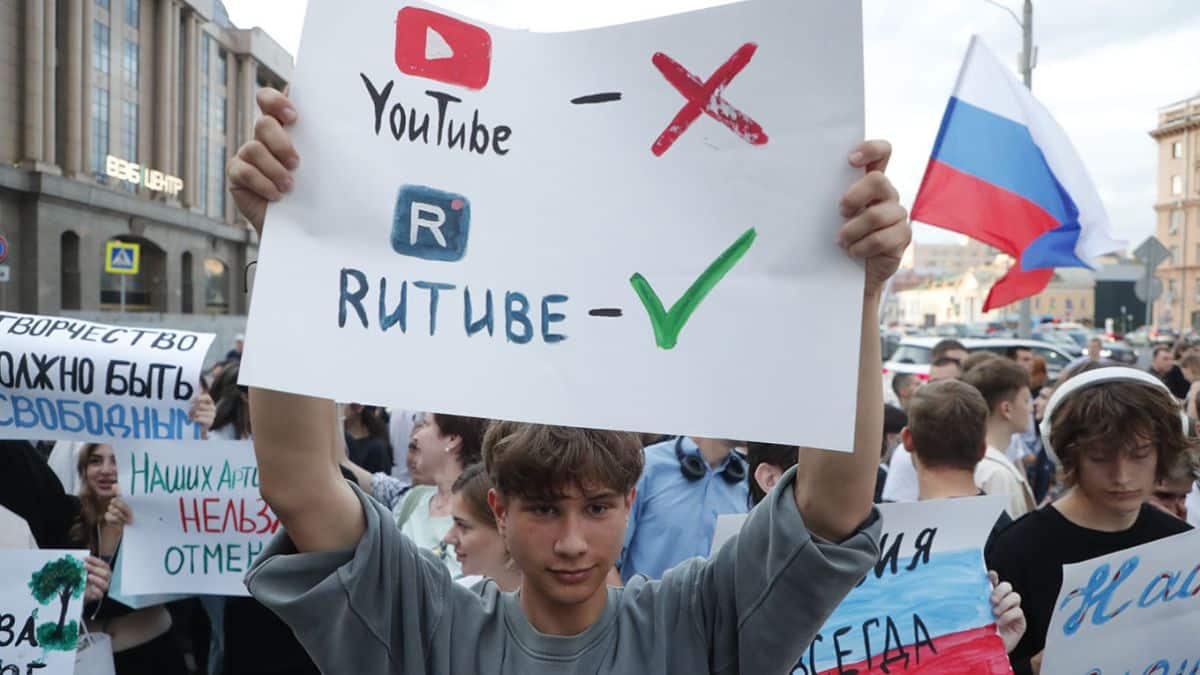As Russia begins to slow YouTube speeds within the country, exiled opposition groups and independent media outlets are bracing for what many fear are impending, more severe restrictions on information and digital freedoms. The move is seen as part of a broader strategy by the Kremlin to tighten control over online content and curb dissenting voices.
Reports of reduced YouTube speeds have emerged from various parts of Russia, affecting the platform’s accessibility and disrupting the flow of information. YouTube, widely used by Russians for news, entertainment, and communication, has been a pivotal tool for opposition figures and independent journalists to reach audiences and disseminate information that differs from state-controlled narratives.
In response, exiled opposition leaders and independent media organizations are taking proactive steps to mitigate the impact of potential future crackdowns. Many are exploring alternative platforms and communication methods to maintain their ability to reach the Russian public. Virtual Private Networks (VPNs) and encrypted messaging apps are being promoted as essential tools for circumventing internet restrictions.
“The slowing of YouTube speeds is a clear signal of the Kremlin’s intent to further suppress free expression and access to independent information,” said Alexei Navalny’s spokesperson from his team in exile.
Independent media outlets, already under significant pressure from new restrictive laws and financial constraints, are also adapting their strategies. Many are increasing their presence on less-regulated platforms and exploring innovative ways to distribute their content, such as through newsletters, podcasts, and decentralized networks.
The slowdown comes amid heightened political tensions and growing unrest over Russia’s domestic and foreign policies. The Kremlin has intensified its efforts to control the information landscape, targeting foreign tech companies and implementing laws that require them to store data locally and remove content deemed illegal by Russian authorities.
As the situation evolves, the resilience of the opposition and independent media will be crucial factor in maintaining channels of free communication and ensuring that diverse voices continue to be heard in Russia.

